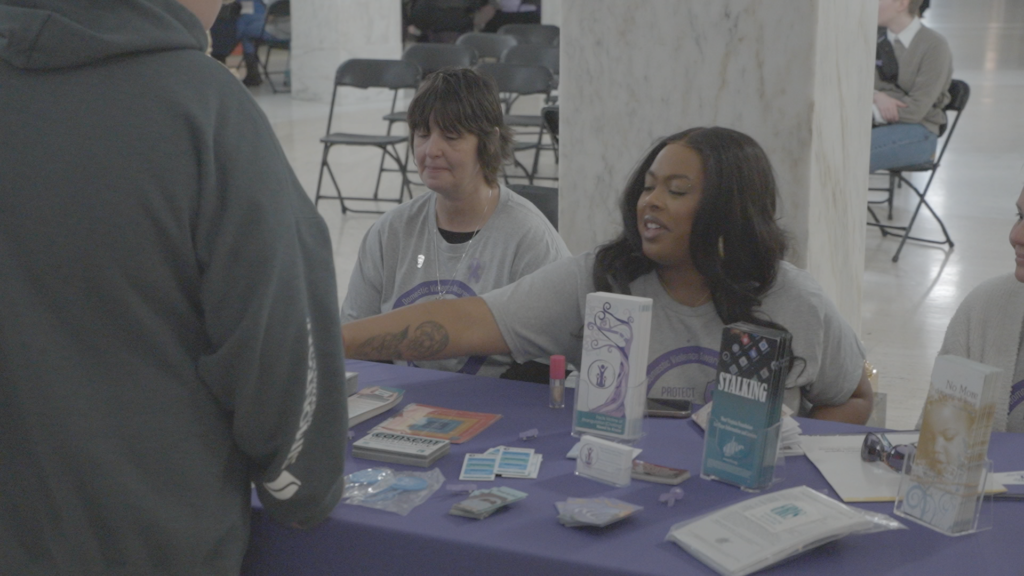As this year’s window for proposing new legislation draws to a close, nonprofits that support victims of domestic violence are calling for more state funding.
Fourteen groups working to curb domestic violence gathered in the State Capitol on a busy Tuesday morning.
The West Virginia Coalition Against Domestic Violence (WVCADV) helps connect victims of domestic violence with the 14 nonprofit groups that tabled at the Capitol, which together serve all 55 counties in West Virginia.
With the end of this year’s legislative session in sight, Joyce Yedlosky, team coordinator with the coalition, said the groups are still in dire need of state funding.
“We’re all private nonprofit organizations who haven’t had a raise in the state budget for over 10 years,” she said. “We’re asking for a line item increase in the budget to be able just to keep up with the cost of living.”
Dwindling funds mark a particular issue for rural communities, according to Amaya Williams, outreach and volunteer coordinator with the Rape and Domestic Violence Information Center.
The group, based in north central West Virginia, often works with victims who can’t reach a resource center due to a lack of public transit.
Many victims “don’t have access to transportation – that’s our biggest barrier,” she said. “It’s a big barrier in seeking services, just because people, if they can’t get to us, then they’re kind of isolated.”
Victims of domestic violence also face challenges in the housing, legal and medical sectors.
These challenges can be particularly acute for Black West Virginians, according to Sarina Tuell, domestic violence outreach specialist with Charleston’s YWCA Resolve Family Abuse Program.
“With [the] systemic oppression and racism that our country alone has a huge history of, they may not trust the legal system,” she said. “They’re not going to go to the court system because there’s already that distrust there, underlying the situation.”
A 2009 study found that Black and Hispanic women are two to three times more likely to be victims of police-reported domestic violence than white women in the United States.
Tuell said racial disparities in domestic violence are something that the nonprofits “really need to hit home on,” and something that lawmakers should make a concerted effort to address.
The groups hoped their presence at the Capitol helped remind legislators of the importance of domestic violence policy. Yedlosky said lawmakers have been receptive to her group’s requests for more funding, but that time is quickly running out this year.
“They are considering our request,” she said. “But, so far, we’re starting to get a little antsy because we haven’t seen any movement.”
Crossover Day, the deadline for a bill to be passed out of its chamber of origin, is Feb. 28 this year — just one day away.
“We hope that we’ll see something as they start to finalize the budget,” Yedlosky said.




















